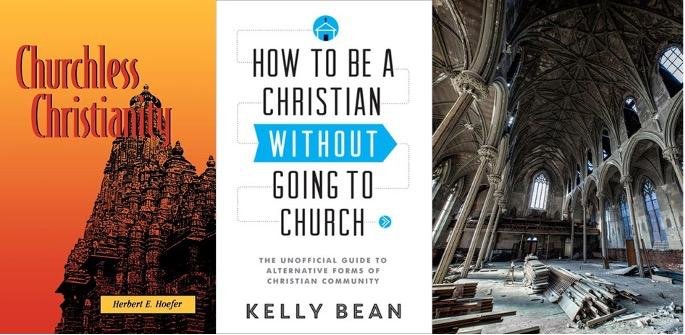Confessions of a Former Chreaster
The eye cannot say to the hand, “I have no need of you,” nor again the head to the feet, “I have not need of you.” On the contrary, the parts of the body that seem to be weaker are indispensable, and on those parts of the body that we think less honorable we bestow the greater honor, and our unrepresentable parts are treated with greater modesty, which our more presentable parts do not require. But God has so composed the body, giving greater honor to the part that lacked it, that there may be no division in the body, but that the members may have the same care for one another. If one member suffers, all suffer together; if one member is honored, all rejoice together. Now you are the body of Christ and individually members of it. (1 Corinthians 12:21–27)
I confess. I am a former “Chreaster.” For those unfamiliar with the term, a Chreaster only attends church services on Christmas and Easter. I had it on good authority (my own), that a believer could experience a full Christian life without the excessive strain on my Sunday mornings. After all, I had a fairly strong “Alt-Worship” routine, between multiple Bible studies, prayer, podcasts, and Christian reading. In a 2005 sermon on 1 Peter 2, Tim Keller quotes a stat that “81% of Americans think you can live a full Christian life without church.” That survey is likely 20 years old, so think how that number may have changed. Technology has given access to more alt-worship than ever before, including “attending” worship in your pajamas from your couch at home. In her 2014 book, How to be a Christian Without Going to Church, Kelly Bean says, “The effort it takes for overcommitted, overextended people to get to a 90-minute service or give time to programs and church events can be too much. Sometimes staying home on a Sunday morning seems like the best way to remain sane.” While contemplating the Cross this Holy Week, the prideful absurdity of this statement elicits a rueful laugh.
How do we illustrate the danger of churchless Christianity? Paul states in detail within 1 Corinthians that members of the body cannot thrive in isolation from other believers. Like nail clippings or cut hair, they might have traits of a believer, but their ability to do the work of believers or to bring glory to the Lord suffers greatly without being incorporated into the body.
Jesus himself, just prior to his arrest, prays this to the Father, “The glory that you have given me I have given to them, that they may be one even as we are one, I in them and you in me, that they may become perfectly one…” (John 17:22-23). The living church is being built together, and like bricks in the building, they are interdependent on one another.
Churchless Christianity can largely be blamed on Churches themselves. They became cultural institutions rather than organic communities to experience the Lord together. But I have expounded on my view of institutional churches in this letter enough. I believe that many of us have found in Grace Church, a community of believers as God intended for His church. As a former Chreaster, I cannot imagine stepping back into an assertion that I can know God by myself. The fruit of a churched Chrisitian life is just so much sweeter. Yet, we are surrounded by Chreasters, and our challenge should be to get them to Church. Like unlaid bricks, they are not realizing their potential, they are not fully part of the “one”, they are experiencing a two-dimensional Christianity.
Christ’s death on the cross mended the divide between us and the Father, allowing us to experience His glory. Let us not watch the opportunity go to waste. More fulfilled Christians in our midst will give us all a fuller view of the Father.
Your brother in Christ,
Thomas Goodrich


